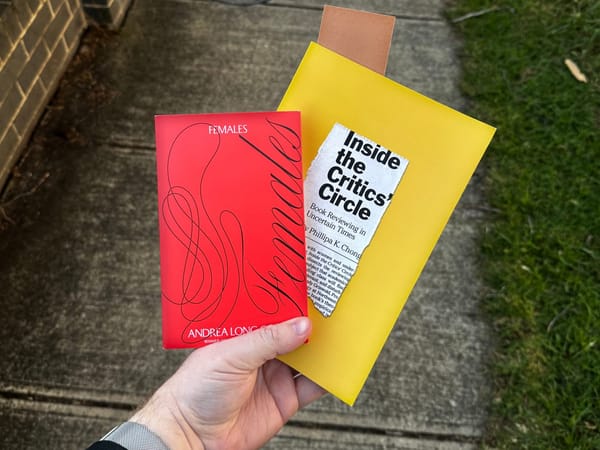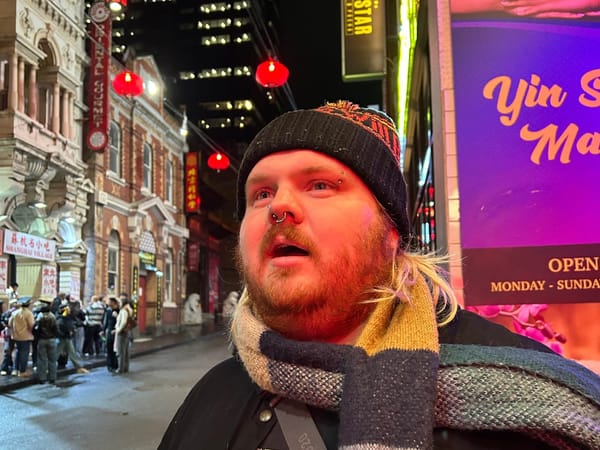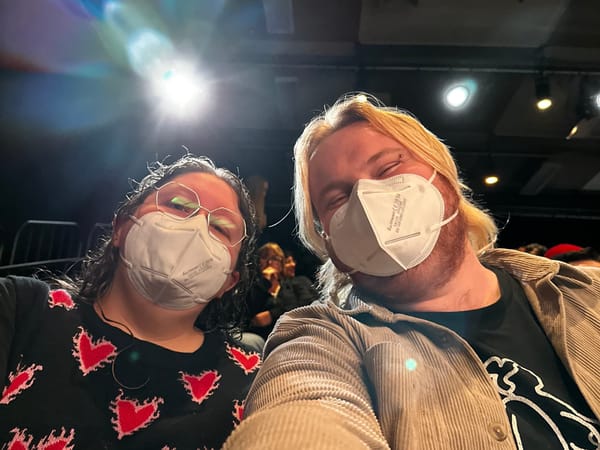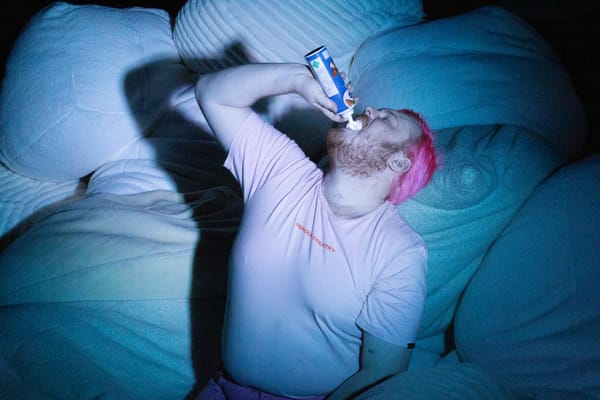🐄 Slim Pickings: the state of fatness on Australian stages
In the absence of fat stories told by fat people, we’re left with a massive elephant in the room.
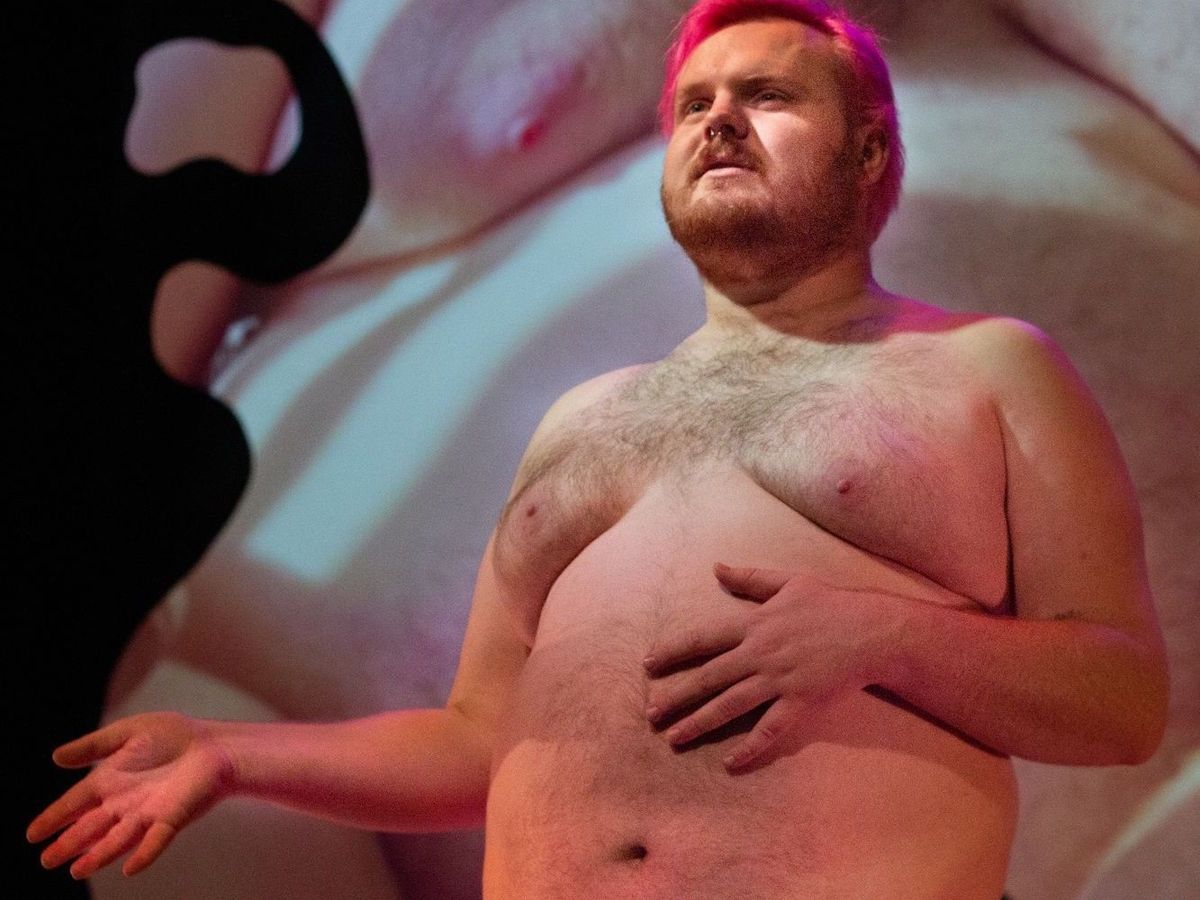
A decade ago Melbourne Theatre Company premiered Beached, a “dark satire” about reality TV – centred on the life of a fat teenager. Like every other story about fatness told by skinny people, Beached was filled with fat suits, hateful caricatures of fat people failing to become thin and an almost fetishistic glee in its descriptions of fat trauma.
Maybe Beached was trying to get at something profound, the sort of thing that theatre is great for grappling with – but you’d think there might be a better way of exploring fatness than shoving a twink in a fat suit (made from bean bags, no less) in front of an audience and calling it a day.
In the decade since, not much has really changed on Australian stages when it comes to stories about fatness.
On the one hand, we’re starting to see a wave of new fat performers taking on characters that weren’t written to be anything more than regular people. Acting schools are becoming more inclusive of who they let in, and so we’re starting to see the bodies that exist onstage reflect the bodies that exist off it. Despite all of this apparent progress, however, it feels as if the best we can do is cast fat actors in roles that never mention their size, or the body politics of their characters at all. You’re fat? That’s fine. But don’t talk about it.
When we do see explicitly fat characters on stage, we’re still using fat suits. Shake & Stir’s adaptations of Roald Dahl’s classics all seem to weave in a fat suit or two, Sydney Theatre Company’s acclaimed production of The Picture of Dorian Gray used one, and almost every amateur production of Hairsprayseems to have one too.
In the absence of fat stories told by fat people, we’re left with a massive elephant in the room: a belly-sized hole where a fat canon should be. Without telling stories that grapple with body politics, we’re left to understand fatness through the scraps of thin storytellers. Through their lens, fatness can only ever be the starting point on a journey to a different body: theirs.
And I’m sorry, but that story sucks. Why should I have to put my life on hold waiting for the day I magically become thin?
So. This is my story. As the fat son of two sports administrators, I was always hearing about how I should eat just a little less. Once, in an outburst of genuine concern, Dad asked me to eat less because he didn’t want to have to watch me die an early death. Of course he thought that; the fat stories he’d seen never ended in fat happily ever afters.
The first time I really felt like my body belonged on a stage was in my high school’s production of Hairspray. I played Edna, and I didn’t get a fat suit, but my Tracy sure did. Hairspray is a deeply problematic show for a predominantly white Aussie high school to do, but you can’t deny how radical its fat representation feels – even today.
At uni I moved in with another fat theatremaker, Em Keagan. In the midst of lockdowns we would cook the most decadent dinners and revel in the pleasure of food. Together we began to unpack the shame we’d carried with us. And all of a sudden, with her, fatness became something to be celebrated. We began to make a work about it all – about the joy we found in being fat and the way friendship helped us get there. We called this big fat play Full Cream.
Even as proud as I am of Full Cream, my throat closes up any time I explain the show to someone. It becomes a show about body positivity, rather than fat liberation. It’s one thing to declare yourself fat in the safety of a dark theatre, but in the light of day it’s terrifying to claim fat for myself, given the power that that word still has on who gets cast and what stories get told.
At the end of the day, we need to hear more stories about fatness. It’s time for mainstage companies to go beyond fat trauma porn and token body diversity. It’s time for people like Kelli Jean Drinkwater, Courtney McManus, Demon Derrière, Jenny Lee, Connor Ovenden-Shaw and more, who are telling exciting new stories about what a fatter world could look like. These people are busy imagining what will be left once we’re done obsessing over calories and kilograms.
In the meantime, I’ll just do my part to make the world a little fatter, so that one day someone will watch Full Cream and be utterly bored by how mundane it is – a story of two fat friends just being happy on stage.
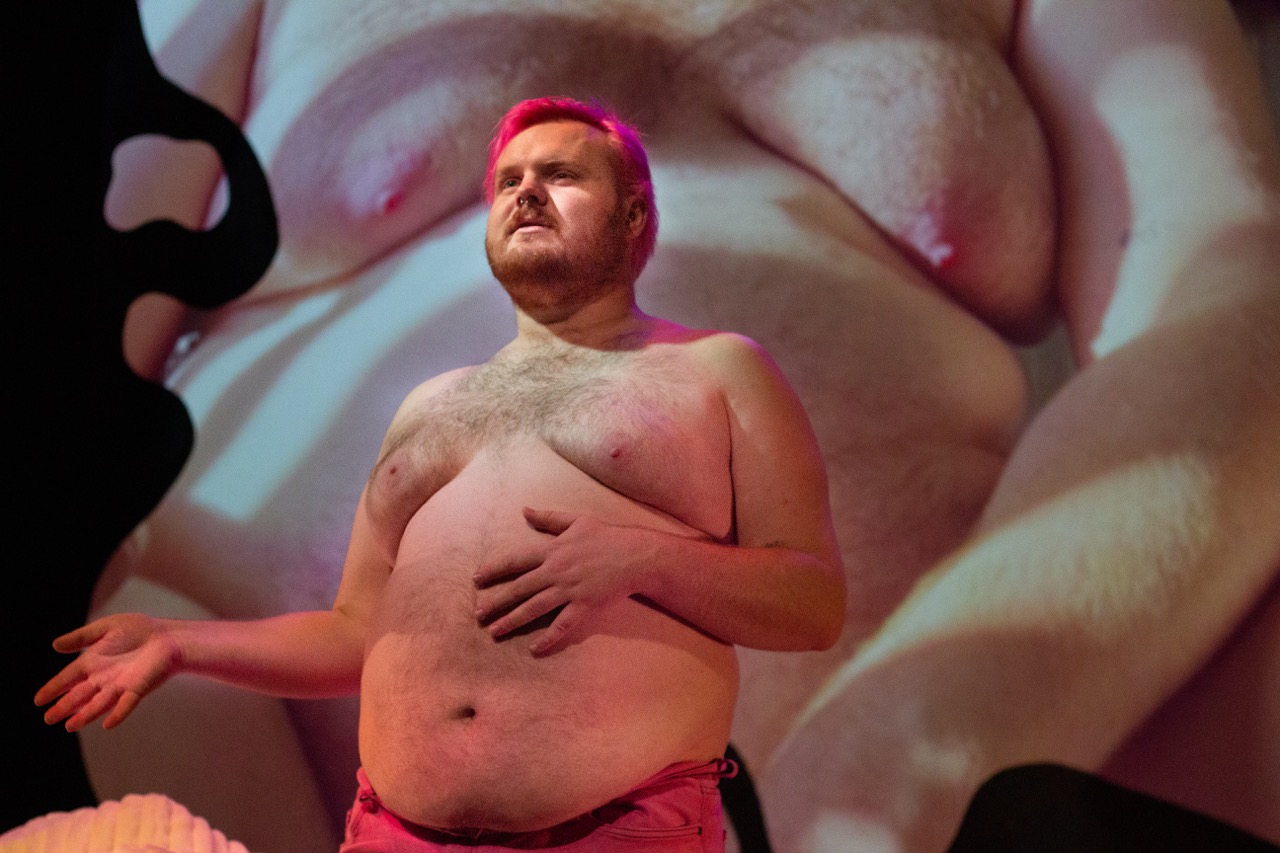
Originally published on ArtsHub



